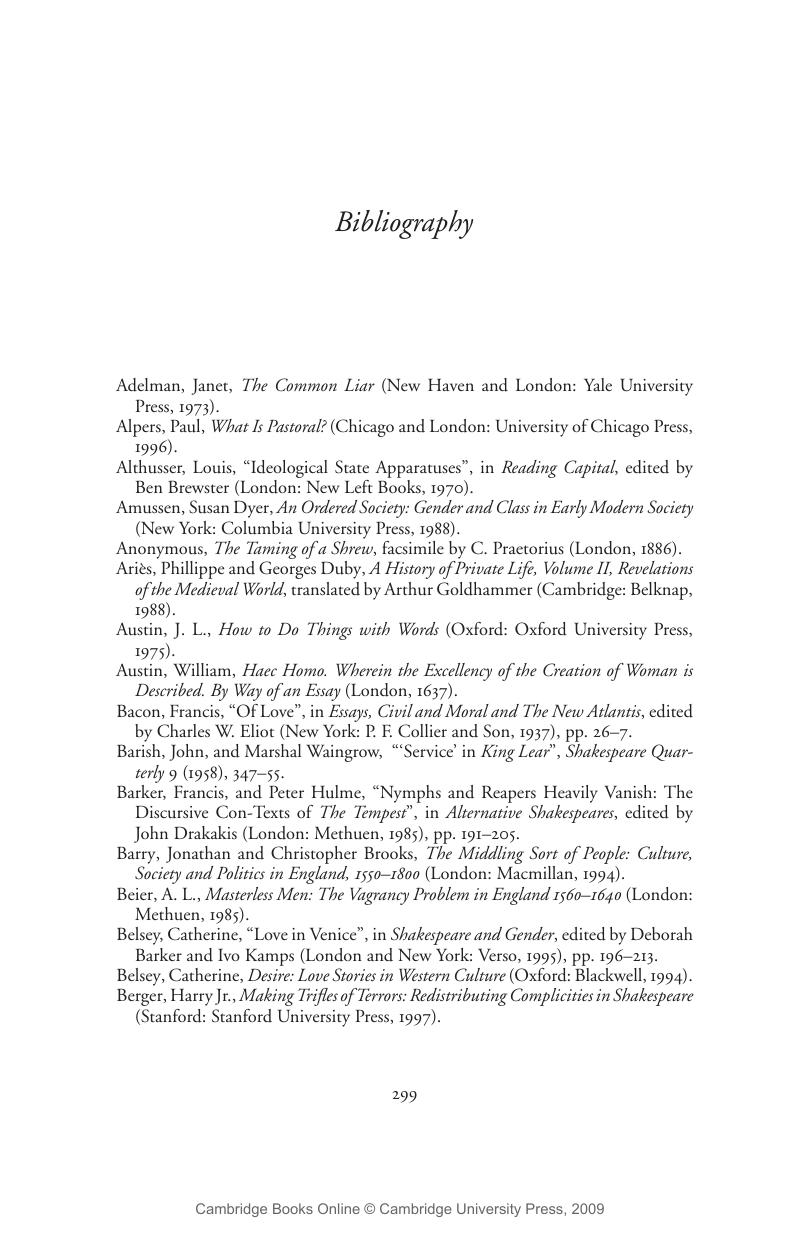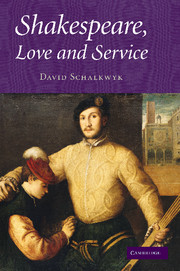Book contents
- Frontmatter
- Contents
- Acknowledgments
- Introduction
- 1 “Thou serv'st me, and I'll love thee”: Love and Service in Shakespeare's World
- 2 Performance and Imagination: The Taming of the Shrew and A Midsummer Night's Dream
- 3 “His man, unbound”: The Comedy of Errors and The Tempest
- 4 “More than a steward”: The Sonnets, Twelfth Night, and Timon of Athens
- 5 “Office and devotion”: Henry IV Parts 1 and 2, the Sonnets, and Antony and Cleopatra
- 6 “I am your own forever”: King Lear and Othello
- 7 “Something more than man”: The Winter's Tale
- Bibliography
- Index
- References
Bibliography
Published online by Cambridge University Press: 22 September 2009
- Frontmatter
- Contents
- Acknowledgments
- Introduction
- 1 “Thou serv'st me, and I'll love thee”: Love and Service in Shakespeare's World
- 2 Performance and Imagination: The Taming of the Shrew and A Midsummer Night's Dream
- 3 “His man, unbound”: The Comedy of Errors and The Tempest
- 4 “More than a steward”: The Sonnets, Twelfth Night, and Timon of Athens
- 5 “Office and devotion”: Henry IV Parts 1 and 2, the Sonnets, and Antony and Cleopatra
- 6 “I am your own forever”: King Lear and Othello
- 7 “Something more than man”: The Winter's Tale
- Bibliography
- Index
- References
Summary

- Type
- Chapter
- Information
- Shakespeare, Love and Service , pp. 299 - 310Publisher: Cambridge University PressPrint publication year: 2008

